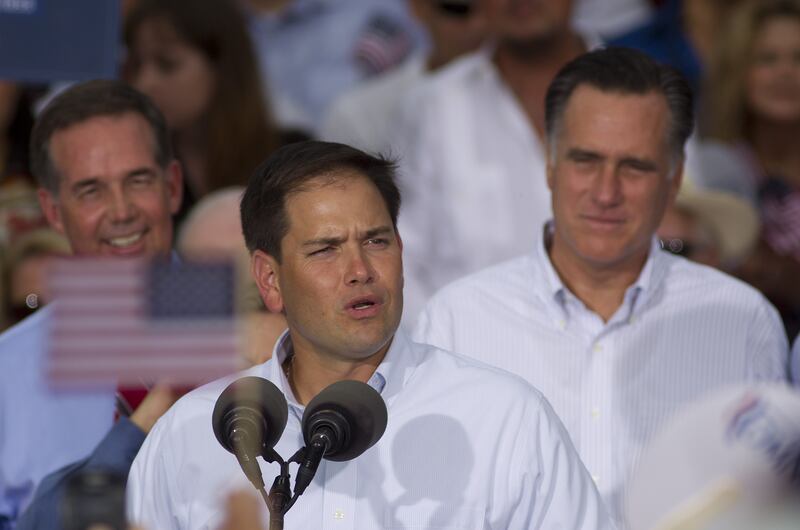SALT LAKE CITY — Florida Sen. Marco Rubio has the support of the Pac-12 Conference for a bill he introduced Thursday regarding the compensation of NCAA student-athletes.
Rubio said the bill would protect athletes, allowing them to be compensated, and would prevent the NCAA from being challenged in court if the organization decides to let athletes earn money through endorsement deals and personal appearances, according to a report by The Associated Press.
“These kids deserve to make a little bit of money while they’re in college,” said Rubio, who’s on a bipartisan working group led by Sens. Mitt Romney, R-Utah, and Chris Murphy, D-Conn., that will examine name, image and likeness compensation for college athletes. “At the same time it prevents the implosion of college athletics.”
The Pac-12 released a statement in response to Rubio’s Fairness in Collegiate Athletics Act.
“We appreciate that thoughtful members of Congress such as Sen. Rubio are seeking a uniform, national solution to empower student-athletes to benefit from their name, image and likeness,” the statement read. “To prevent an uneven system of state laws, a national system is necessary along with protection to implement and enforce NIL rules.
“Sen. Rubio recognizes that objective, and we look forward to working with him and additional legislators on a national NIL solution that is universal, enforceable, fair to all student-athletes and compatible with the educational premise of the uniquely American collegiate model.”
It’s been a busy week on this financial front.
Attorneys for two Pac-12 athletes — Arizona State swimmer Grant House and Oregon women’s basketball player Sedona Prince — filed a lawsuit against the NCAA in hopes of preventing the association from limiting how much athletes can make off of their names, images and likenesses, the AP reported.
The athletes are also suing the NCAA and the Power Five conferences in federal court to seek damages for potential past earnings athletes have been denied by current rules, according to the AP.
While multiple states such as California, Colorado and Florida (this week) have signed laws to allow athletes to earn money within their borders, Rubio’s bill would supersede states laws. If passed, the NCAA would have until June 2021 to present legislation that member schools can vote on, the AP reported. The Federal Trade Commission would enforce the law and could impose penalties on the NCAA if it doesn’t meet a potential deadline.
“We can’t have 50 separate laws. It will destroy college athletics,” Rubio said.
A statement from Big 12 Commissioner Bob Bowlsby’s statement echoed that of the Pac-12.
“We look forward to collaborating with our elected officials to affect the necessary change,” Bowlsby said. “Further, we are committed to working with policymakers to craft a system that permits student-athletes to profit from their name, image and likeness while also maintaining our uniquely American, education-based collegiate athletics model.”
But the executive director of the National College Players Association believes Rubio’s bill would be detrimental to student-athletes, as it would give the NCAA too much leverage in crafting the federal law.
“Sen. Rubio’s bill undermines the rights and protections guaranteed to Florida athletes that the Florida state legislature and governor adopted as law just days ago,” Ramogi Huma told the AP. “It undermines economic freedom, states’ rights, and gives the NCAA immunity for illegal activities. We encourage him to change course on this issue.”
A bill, pushed by Rep. Mark Walker, R-N.C., aimed at preventing schools from allowing college athletes to earn money off of their names, images and likenesses has stalled.
Murphy said legislation passed “should put college athletes first, not the financial interests of schools” — something he claims hasn’t always been the case.


